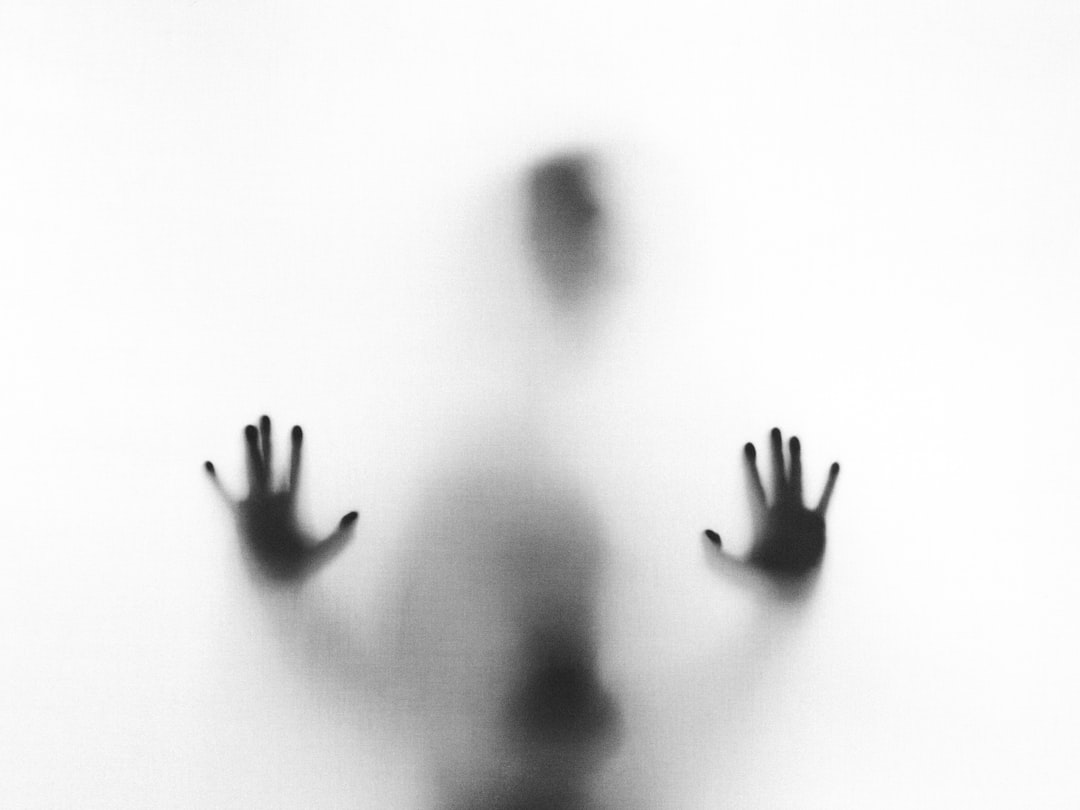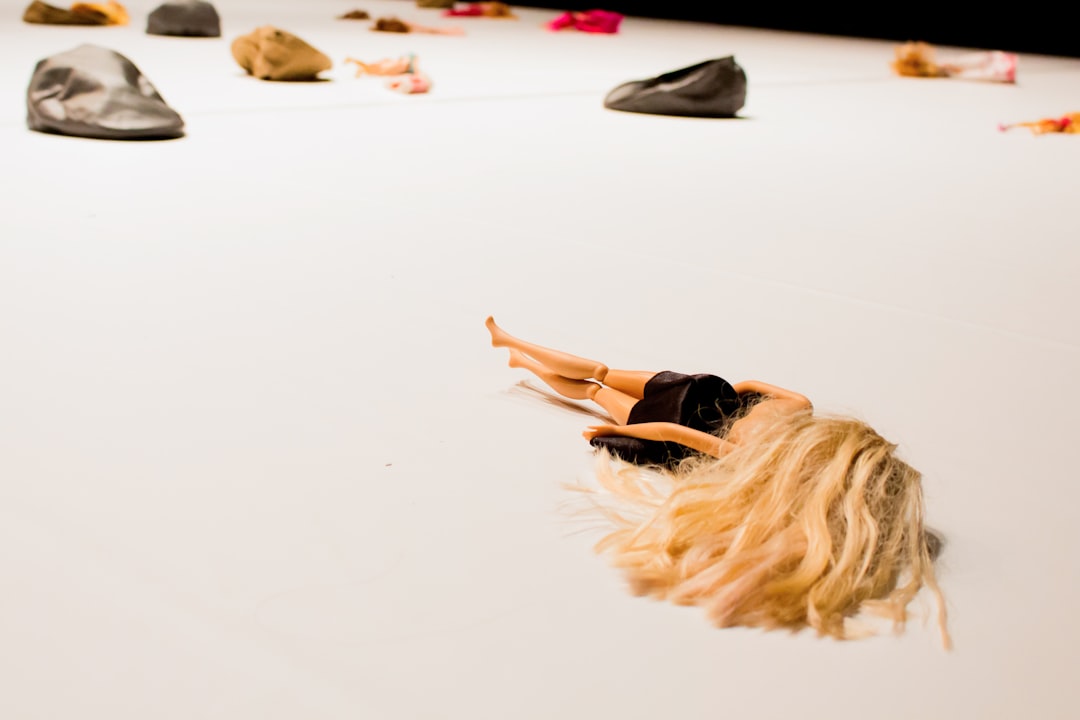Men, Are You Unhappy?
There's a way out. Ken might even be able to help you find it
Right after the multi-million dollar Barbie promotion budget hit the airwaves and billboards and tweets and posts and so on and so forth a reactionary wave started to respond. The Ben Shapiros and Jordan Petersons and Andrew Tates warned men that the movie said the word patriarchy too much and relegated men to powerlessness and obscurity and promoted toxic feminism. When the movie hit theaters Shapiro posted a picture of him looking upset outside the theater, a photo he apparently had to take before seeing the movie for his follow-up hate review. He then posted said 45 minute rant about the film. And, despite knowing that these podcaster men have found considerable success, I found the whole thing pretty funny. To me these manosphere influencers always look miserable, and coming out against Barbie for these reasons feels like the height of misery—complaining at length about a movie filled with pink that promotes the message that women ought to be fully free and empowered and where all sorts of people have enjoyed dressing up and going out to the theaters just doesn’t look like fun.
But the movie also had one other element, one other message that might have been the real source of misery for the podcaster guys and their brand of masculinity. The end of the Barbie movie promotes men being happy, content, and free from patriarchy. If you happen to be reading this as a guy who doesn’t like the word patriarchy, just hear me out for a bit. This message that guys can and should be content and comfortable being who we are is dangerous to the income streams of influencers who spend their days telling us to stick within the narrow, outdated, and oppressive limits of what they say it means to be a man. Don’t get me wrong, I don’t think Barbie is revolutionary. The feminism in the movie is something that I’ve rarely seen in massive blockbuster movies, but it isn’t exactly radical. It is a fairly direct, clear, and generally anti-patriarchal feminism that the movie puts before a mainstream audience. I can hold that the movie is a major capitalist coup for Mattel, but there’s no denying that it raises the bar a bit for feminism in blockbusters, and that it was fun to dress up and go to the movie with my partner who grew up with Barbie. Then, we mostly came back down to Earth to grapple with the limits of the movie’s message, the fundamental issues with Mattel and Barbie, and how it all fits into this massive corporation’s business strategy.
And yet, even after multiple long conversations between us about how the movie might fall short or how we should remain skeptical I still maintain that it has a message most men ought to hear, one way or another. In a way, the message feels remarkably simple, but as Akin Olla wrote in a fantastic piece about men and Ken and Barbie, men by and large haven’t developed the frameworks and practices to free ourselves from outdated ideas about our role in society, and how we’re expected to behave, nearly as much as women and other people have built up their paths towards freedom from oppressive systems and ideologies over recent decades. All that is to say I think a lot of us need to start with some foundational and important points. Right now when I talk about this my starting point is just, “don’t you want to be happy?”
At the end of the Barbie movie, the Barbies collectively overcome the patriarchal brainwashing and all-male government that has been installed in Barbieland, with the help of Allan and a mother and daughter from the human world. Immediately after this successful and bloodless revolution stereotypical Barbie has a talk with Ken where she’s essentially trying to free him from the patriarchal ideas he found when he came to our world. But she’s also not trying to return him to the position and mindset he had at the beginning of the movie, where he was merely an addendum to Barbie, defined and defining himself only in relation to her. Instead, she’s trying to help him get free. She explicitly talks with him about finding his own interests and figuring out what he really wants for himself, not for her or anyone else. His moment of realization is not exactly poetic, but it is noteworthy when Ryan Gosling repeats to himself, several times, “Ken is me” and follows it up soon after by wearing a tie-die hoodie that simply says, “I am Kenough.”
I don’t exactly love the “Ken is me” wording in his moment of revelation, but I do like the message we get at this point in the movie. And I do like the idea of being Kenough, of men being in a place where we feel like being ourselves is enough. There is also one last line I want to bring in here, which comes when Barbie and Ken are in the midst of reconciling and debriefing his brief bout of patriarchy that led to men taking over and reshaping Barbieland. In that conversation Ken admits to Barbie that when he realized patriarchy wasn’t really about horses he sort of lost interest. All of this gives us a message that is simple in some ways and fairly profound in others. The message is that patriarchy confines men, and that there’s a world of freedom that comes with getting out from under it. There’s a world where its fine for men to just care about horses, or whatever our real interests might be, without also needing these interests to be macho in some way or needing them to be tied to ideas of masculinity created by some unknown guys centuries ago that we’re told to cling to.

The masculinity influencer types market their approach to being a man as a way, the way, for men to be happy. They wouldn’t put it that way, in fact many would probably say that pursuing happiness is “soft” and what men need to aim for is confidence and strength and the ability to provide for our families. But in marketing themselves as the antidote to male loneliness and dissatisfaction they promise confidence and strength and what we’re supposed to believe is happiness. And a core component in making us happier is helping us identify what it is that is making us unhappy. In the case of the manosphere that source is often women, feminism, and ‘wokeness,’ which they can’t exactly define. They leave out how its gotten harder to make ends meet, how community has gotten harder for a lot of us to find, and how hard it can be to break out of isolation and loneliness.
Well, that’s not totally true. They do talk about loneliness. But they blame women and feminism for it, and weak men who refuse to dominate the world and the women around us. But what if other men are somewhat to blame, or more specifically what if some of these expectations men have of each other are to blame? I see a lot of conservative men talking about how no one cares when men are suffering, but where did the idea that men should be tough and not cry and all that start? Who enforces it? Where did the idea that we should dismiss men who are suffering start? For me it was popular culture, and then other boys. Growing up both the media I consumed and the other guys at school taught me not to show feelings. They didn’t say it in those words, but on TV and in movies and in the books I read I just don’t remember seeing men really share how they were feeling much. Maybe once in a while I saw some emotional conversations between a father and a son in a movie, but more often I remember seeing men choke back their feelings, and bury them somewhere deep down.
And the influencers that want us blaming women for not caring about our suffering are the same influencers telling us to take control over the women and a lot of the people in our lives more broadly. Even if this hurts the people around us. Some of them explicitly give advice that involves hurting those around us. This is how it works. Men shaping our views on how we should feel and act and then telling us to blame women for our problems. And now a lot of these men are pushing this message to make money off us. I grew up before social media and if there were these type of podcast guys I missed them. But I remember the locker room in middle school, I remember the bus back and forth to basketball games, I remember the conversations about girls in high school. I think most men do. I think if we remember back just a little bit we know where we learned how to see women, and where we learned that it was okay disrespect them.
What might be a little harder to remember, because its even less fun for a lot of us to think about, is that these boys and men weren’t just telling us, intentionally and unintentionally, what to think about women and how to behave towards them, they were also telling us how to act in general. In ways that were sometimes just little looks, but were sometimes harsh jokes or icing us out of social circles or parties or activities, I would say almost all men grew up being taught lessons about what was okay for us to do as men, and what wasn’t. What made us men and what made us something less than a man. In all these different ways other boys told us what it was okay to wear, what it was okay to do and say, what interests and hobbies were acceptable and what wasn’t. I could list how sports were okay and a lot of artsy things weren’t, what movies were okay and which ones weren’t, what bands were acceptable and which one weren’t alright, but the guys reading this already know. I’m sure it all varies a little in different times and places, but what’s universal is being both quietly and loudly told by other guys what is okay and what’s not, if you want to be a real man. And you must want to be a real man; whether you like it—whether you like all these rules and restrictions—or not, doesn’t matter.
And all of this hurts women too, of course; it hurts everyone. If you’ve made it this far I assume that goes without saying. But as bell hooks writes in The Will to Change:
“Patriarchy as a system has denied males access to full emotional well-being, which is not the same as feeling rewarded, successful, or powerful because of one’s capacity to assert control over others. To truly address male pain and male crisis we must as a nation be willing to expose the harsh reality that patriarchy has damaged men in the past and continues to damage them in the present. If patriarchy were truly rewarding to men, the violence and addiction in family life that is so all-pervasive would not exist. This violence was not created by feminism. If patriarchy were rewarding, the overwhelming dissatisfaction most men feel in their work lives…would not exist.”

Both for women and for ourselves and for everyone we need to get past this system that puts us in a little box of what’s acceptable and what’s not, and punishes us in a bunch of different ways if we try to step out of that small cell. I know we benefit from this system when it comes to power and the structure of society, and I know why some men work overtime to reinforce the bars instead of trying to break free. The set of rules that keeps us inside might be painful in some ways, might force us to cut ourselves off from emotions and interests and the person we really want to be, but at least they’re clear. Outside is unclear, uncertain, risky. But I ask you, again, if you’re happy, because we all know that so many of us are lonely and unhappy and unsure of what to do. My answer is simple, but not easy. It’s break free. Get out of this narrow box with its strict and limited set of rules about what it means to be a man. There’s a better way, there’s many better ways. But it all starts with being willing to question what we’ve been told by boys and men and society since we were kids.
On the other side of these bars is freedom, and the possibility of a lot more happiness. As bell hooks said, there’s the chance for “full emotional well-being” and I think we all know somewhere deep down that we’re denied the chance to be ourselves, to be our full selves. We also know it might be uncomfortable or risky to go pursue who we really are, to find what our full self really looks like and feels like and acts like, but I think in the back of our heads we also know that it’s worth a whole lot to be whole, to be ourselves, to be free. I hope I get there, and I hope you do too. I hope to see you over on the other side.



Well done! Honestly I appreciate you confirming what I knew about guys like Ben and the like. I don’t consume their stuff but I thought I knew what their “thing” is, and I am glad I wasn’t putting them into a box.
As a black man, patriarchy is...not so cut and dry, especially in America. But on the whole obviously I have more privilege per say than women of color especially but white women in some circumstances, and people of the LGBTQIA+ community. But it all sucks. I have always said if your philosophy in life or your politics hurt someone/constrain someone and that is something that brings you joy? Perhaps there needs to be a check on that moral compass.
I agree totally. Patriarchy hurts everyone. Excellent piece.